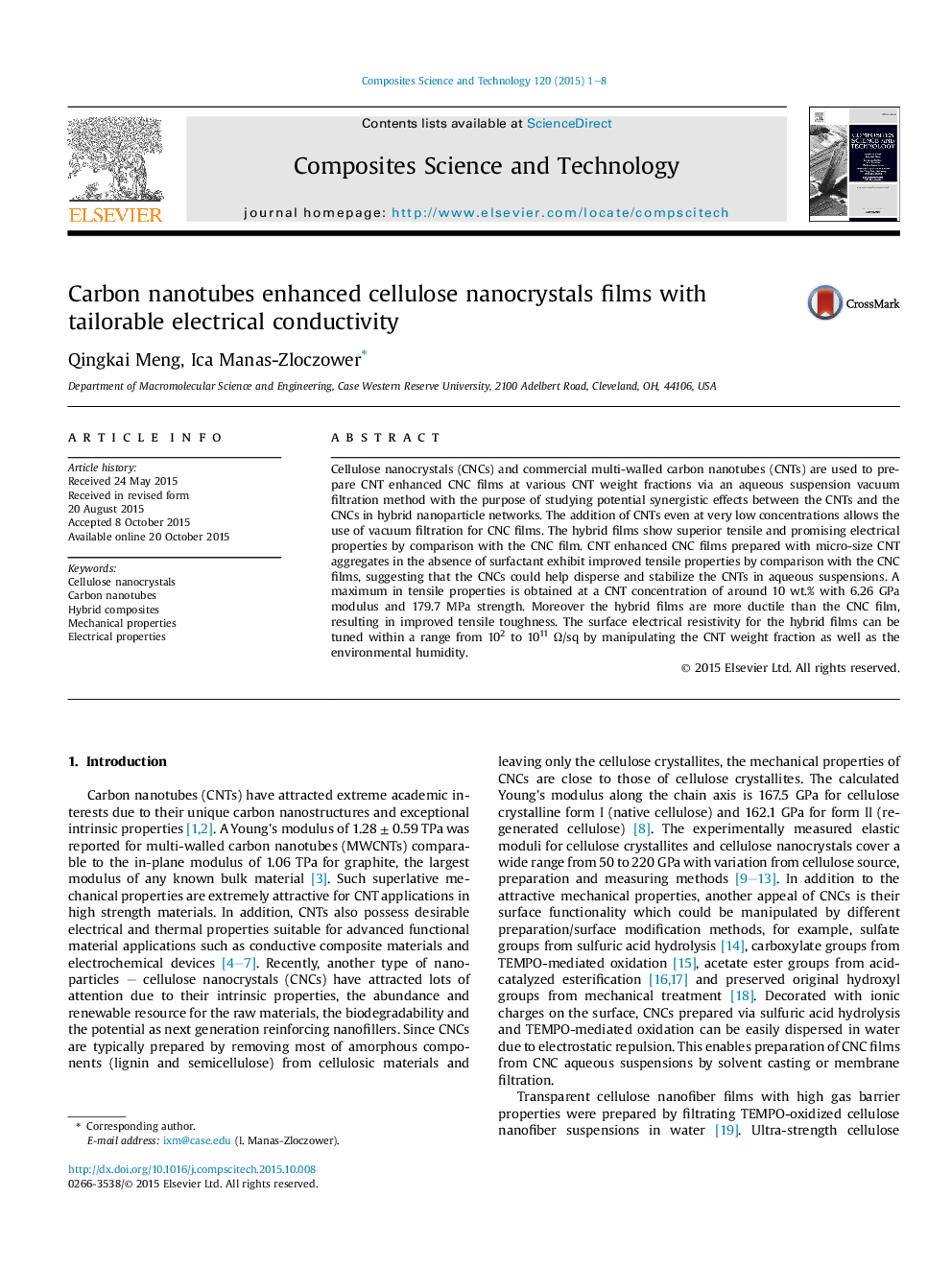| Article ID | Journal | Published Year | Pages | File Type |
|---|---|---|---|---|
| 820028 | Composites Science and Technology | 2015 | 8 Pages |
Cellulose nanocrystals (CNCs) and commercial multi-walled carbon nanotubes (CNTs) are used to prepare CNT enhanced CNC films at various CNT weight fractions via an aqueous suspension vacuum filtration method with the purpose of studying potential synergistic effects between the CNTs and the CNCs in hybrid nanoparticle networks. The addition of CNTs even at very low concentrations allows the use of vacuum filtration for CNC films. The hybrid films show superior tensile and promising electrical properties by comparison with the CNC film. CNT enhanced CNC films prepared with micro-size CNT aggregates in the absence of surfactant exhibit improved tensile properties by comparison with the CNC films, suggesting that the CNCs could help disperse and stabilize the CNTs in aqueous suspensions. A maximum in tensile properties is obtained at a CNT concentration of around 10 wt.% with 6.26 GPa modulus and 179.7 MPa strength. Moreover the hybrid films are more ductile than the CNC film, resulting in improved tensile toughness. The surface electrical resistivity for the hybrid films can be tuned within a range from 102 to 1011 Ω/sq by manipulating the CNT weight fraction as well as the environmental humidity.
